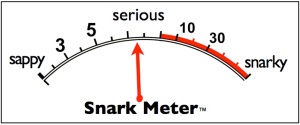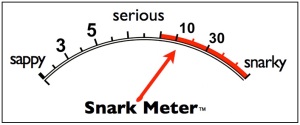

Have you ever been really tired? As in, barely drag yourself out of bed, wonder how you’ll make it through the day, dog-tired?
Have you ever been discouraged, depressed, or anxious?
Are you any of those right now?
Jesus lets us in on a spiritual practice that research says increases work performance, reduces anxiety & depression, increases energy levels and happiness, and will even help you live longer.
What is this great catalyst for human thriving?
It is Sabbath. That’s right – a simple practice taken for granted for 3500 years.
We don’t sabbath much these days. We go, go, go. 24/7. We brag about the number of hours we work. If we do “take” a day (Did you notice we use the language of theft?) it is to shop, do home projects, plan the week, or acquiesce to the tyranny of Sunday children’s sports. That isn’t sabbath! The Hebrew word for sabbath means “cease.” Sabbath is about ceasing – about rest!
Easier said than done
I had breakfast with a friend last week. As we left he asked if I was on my way to the office. I told him, “No, it’s my day off.” He asked what my plans were. I replied, “Writing a talk on sabbath taking.” I am so bad at taking a day off that I used my day off to write a sermon on taking a day off!
If you were born before 1965 you have, in the recesses of your memory, Sunday go to meetin’ clothes, dinner with cousins, sitting on the porch, naps, ball in the yard, reading with your family…and being bored because all the stores were closed. The sabbath was a day to “cease.”

In Mark 2:23-3:6 Mark records Jesus being followed and grilled by religious leaders for improper sabbathing. Jesus was well-acquainted with the sabbath. Keeping sabbath is the fourth of the 10 commandments. The exhortation to “remember the sabbath” is repeated 150 times, more than the other 9 commandments combined. One example illustrates the sabbath’s place in the biblical narrative: When Moses is about to leave the mountain from God’s presence, tablets in hand, to take the commandments to the people (Exodus 31:12-18), God’s parting words are, “Above all, remember the sabbath.”
What’s the big deal?
Sabbath is God’s primary mode of spiritual formation. It is the marinade of the spiritual life – a secret sauce that, when it soaks into us, flavors our lives. Which means that getting rid of the sabbath is a great way to insure spiritual blandness. Joseph Stalin actually tried this. The Soviet Union went to a 5-day week in 1930. It was a trick to get rid of religion by eliminating the sabbath.
What happened when folk worked hard and didn’t balance work with rest, community, and worship? Productivity plummeted. When the Nazi’s invaded Russia in 1940, the Soviets immediately went back to the 7-day week. All work and no play doesn’t just make Jack a dull boy, it makes Jack an unproductive one.
How does overwork lower productivity?
When we go 24/7 it raises the stress hormone, cortisol, that our bodies make for short term fight or flight. According to Psychology Today, elevated cortisols are public health enemy number one. When cortisol levels remain high it interferes with learning and memory, lowers immune function and bone density, and causes increases in weight, blood pressure and cholesterol levels. High cortisol is also linked to depression, anxiety, diabetes, and heart disease. In other words, skipping the sabbath is bad for both your physical and emotional health.
In 2005 National Geographic did a cover story on the five places on the planet with an abundance of people living past 100 years of age. One is in the U.S. – Loma Linda, California. Loma Linda is unique for a high percentage of Seventh Day Adventists, a group whose defining characteristic is…wait for it…keeping the sabbath. Keeping the sabbath is associated with lengthened life expectancy.
Over our lifetime, a regular sabbath adds up to a decade with God. Imagine, where would you be if you took a decade away from your education? Working through the sabbath means we will end our lives a decade less wise than our forbearers.
Let’s summarize: Skipping the sabbath lowers work performance, is harmful to our physical and emotional health, shortens our life expectancy, and exacts a high price on the truest, deepest part of us – our spiritual life. Conclusion: We really ought to sabbath.
How does one sabbath?
Keeping the sabbath is as simple as trading 24/7 for 24/6. Whatever is “work” for you, “cease” it one day a week.
Sabbath suggestions
- Stay off the phone. Email, text and Facebook can wait.
- Do something fun.
- Keep a gratitude journal.
- Do less. Scratch activities from Sundays to create margin-like those kid’s sports leagues.
- Be with family and friends.
- Worship God.
In Mark 2:23 the religious leaders hassled Jesus about the disciples noshing on grain as they walked through a farm field. We think of that as petty theft. Snacking wasn’t stealing, though, it was expressly permitted by the law…unless they pocketed food (Deuteronomy 23:23-24). By Jesus’ day, however, the importance of the sabbath had led religious leaders to make a bunch of strange rules to prevent work. One such rule was against walking more than 2/3 of a mile on the sabbath. 2/3 a mile broke their arbitrary “work” threshold. To get around the rules folk would build tiny little 1’x1’ houses 2/3 a mile from home, then they could walk twice as far.

The religious leaders were hassling Jesus because picking grain was “work.” Notice that they wanted the disciples to violate the 8th commandment against stealing in order to keep a made-up rule to avoid work. Jesus gently corrected their made-up rule with scripture, then irritated them by calling himself the “Lord of the sabbath.” Then Jesus walks right into a synagogue and demonstrates his lordship over that sabbath by healing a guy. Jesus wasn’t disrespecting the sabbath, he was placing it into perspective. “The sabbath is made for you!”
How is the sabbath for you?
The sabbath isn’t just a mechanism of rest, it is a tool of identity. We were created in God’s image and given vocations. God shares his dazzling vision for the future in order to use you and me to bring it about. That vision soaks into us as we participate in the weekly rhythm of sabbath. So, take that day each week. Rest. Worship. Study. See if you don’t begin to view you, your work, and God’s world through new eyes.
The original American dream of the freedom to pursue happiness has been written down like a bad debt. Our culture’s new mantra is that we work to live: get as much money possible, as fast as possible, with the least effort possible, in order to get off work to go do something else.
Frankly, it’s a lame way to live.
We were, all of us, whether artist or barista, therapist or teacher, oil exec or equity guy, spiritual beings. We were made for God’s presence to seep into, to awaken us to the God-saturated world where you can work and rest and play as designed, both for your benefit and to the honor of the One who speaks his purpose over and into you.
That is why Jesus sabbathed, by the way; to keep his connection with his Father deep, strong, alive. Sabbath empowered Jesus’ work. “Sabbath was made for man,” not for you to be fresh for an 0500 Monday wake-up, but to connect us to the one true source of life, God himself. Our NEED for rest is a constant reminder of our NEED for a Savior. Without Christ, we will work without purpose, without wholeness, and without a break.
In Jesus, God welcomes us to rest, marinating us in the wise, joyful presence of our heavenly Father. God made us with spiritual ears to hear His still small voice whispering to our hearts. But we only hear that voice when we pause to listen…when we sabbath.
So go ahead, keep killing it at work. But kill it 24/6.
























